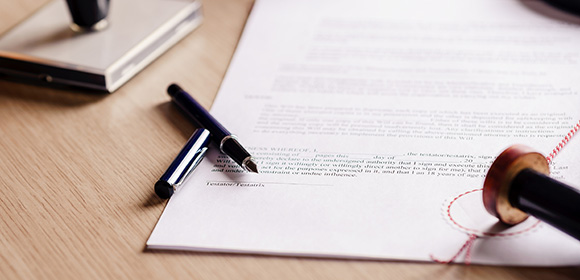by Geoff Kirbyson
If you thought the most important document to have when owning a house was your mortgage, you wouldn’t be alone but you’d be wrong.
It makes intuitive sense but if you don’t have a will or a power of attorney, you’re opening yourself up to a Pandora’s Box if — actually it’s when — you die.
“Having a will and a power of attorney is probably the best investment you’ll ever make. You never know how the chips are going to fall,” said David King, a Winnipeg-based partner at Taylor McCaffrey, who specializes in wills and estates and real estate.
Things aren’t terribly complicated from a legal point of view when the first spouse dies. Assuming the house is jointly owned, the surviving spouse will need to get a death certificate from the vital statistics department and file a survivorship request with the property registry to have the house put in their name alone.
The trouble is, with so many things happening following a death in the family, such as arranging a funeral and burial — not to mention grieving — survivors often fail to get around to this task. It’s not crucial but a death certificate is going to be needed down the road to prepare a variety of documents, particularly when the surviving spouse dies.
“We have to be able to prove that the first owner died,” he said.
When the surviving spouse dies, documents will be filed in the Court of Queen’s Bench to verify that the will is being executed properly. Without a will, letters of administration need to be filed and it also needs to be determined who will be the administrator of your estate.
“It’s really important to have a will when you die because it simplifies things and ensures that (your possessions) are doled out according to your wishes and not those of the province,” he said.
“We need someone recognized by the court as having the ability to sign documents at Land Titles because that land is in your name alone. We can’t transfer it until we have approval from the court by way of grant of probate or letters of administration.”
So, how often do people die without a will? How about all the time?
King said he deals with it 30 to 40 per cent of the time.
“A lot of people think, ‘if I make my will, I’m going to die,’” he said.
(Not to belabour the point but it’s “when.”)
People die without a power of attorney just as often, he said.
“If you have a stroke, who can sign for you? Your spouse can sign on the joint bank account, but they can’t sell the house without power of attorney,” he said.
It’s not uncommon for a lawyer to visit a client in the hospital to sign a will or power of attorney. A potential problem, however, arises if the client is too doped up on pain killers to the point that they’re not competent. If that’s the case, they can’t sign off on them.
“I say to people, do up your will and power of attorney in advance. You could get hit by a bus tomorrow,” he said.
It’s not uncommon for people to ask about adding their children to the title of their house or condo but King recommends against it. He said he has seen enough cases to know it can cause much more trouble than it’s worth.
“If the kid gets a judgment registered against them or gets divorced, it can end up giving people a lot of grief. If you want to sell the house, the kids have to sign the mortgage. You lose control over your assets,” he said.
geoffkirbyson@mymts.net



